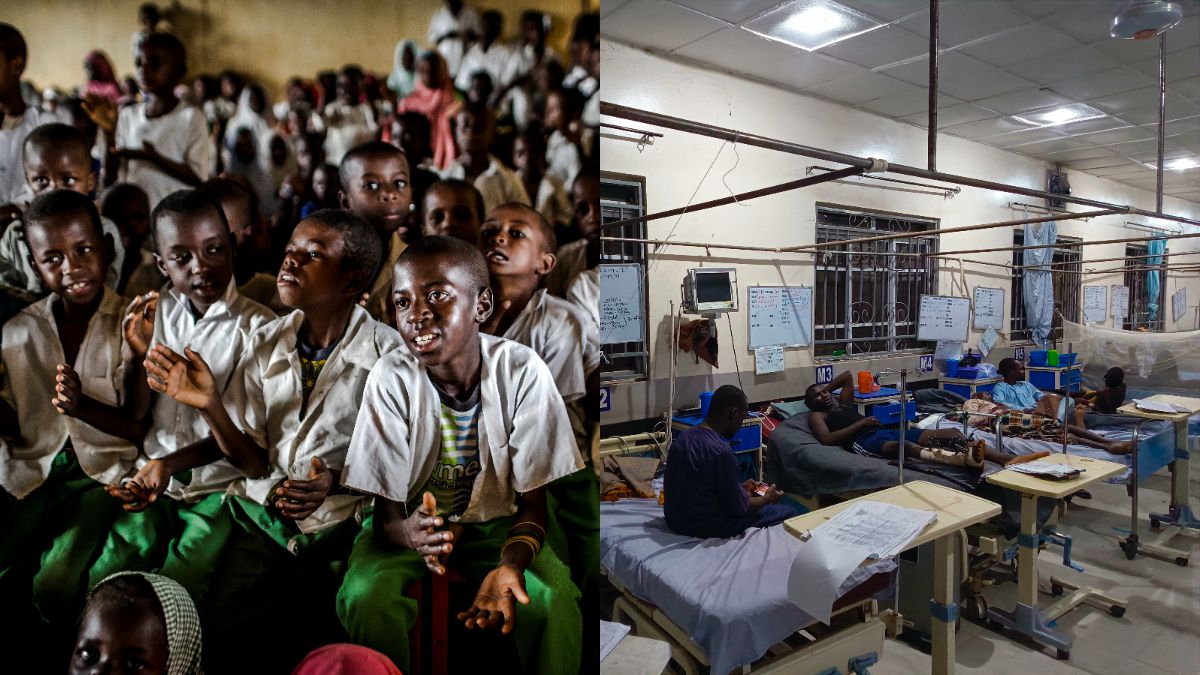
Despite billions of naira in public spending, Nigeria’s basic education and healthcare systems remain critically underfunded, poorly managed, and inaccessible to millions—this is the damning conclusion of a new report released by Connected Development (CODE) as part of its 2024 Annual Report.
The report, which analyzed 553 schools and 784 primary healthcare centers (PHCs) across 520 communities in 34 states and 332 local government areas, reveals that vast disparities and infrastructure deficits persist in communities where public services are most needed.
At the presentation of the findings in Abuja on Wednesday, June 18, 2025, CODE’s Chief Executive, Hamzat Lawal, stated that the data indicates a systemic failure in delivering basic services, particularly in Nigeria’s most vulnerable communities.
The report comes under the theme “A Year of Active Citizen” and forms part of CODE’s broader accountability and governance efforts across Africa.
Education Sector: Deepening Inequalities
Despite state governments collectively spending nearly ₦894 billion on education, the CODE report revealed shocking lapses in infrastructure, equity, and service delivery.
One of the most pressing issues is classroom overcrowding, particularly in the Northwest, Northeast, and North Central regions.
In the North West, the average classroom holds 129 students—more than three times the national benchmark of 40.
Plateau State recorded some of the most severe overcrowding, with classrooms holding up to 280 pupils. In contrast, the Southwest recorded relatively balanced ratios, with an average of 35 students per class.
Hamzat Lawal highlighted that while gender parity has improved in some zones, disparities remain stark: “Three zones—North Central, South-South, and South West—have more girls enrolled than boys. However, the North East, North West, and South East still show higher male enrollment.
“This imbalance, if not urgently addressed, will continue to marginalize girls in already underserved regions,” he said.
Equally troubling is the lack of teacher training as stipulated in the report released by CODE.
In Zamfara and Sokoto, over 50% of teachers have never received any form of professional development.
Teacher attendance is also a significant concern: in Rivers, Nasarawa, Taraba, Adamawa, and several other states, teacher presence in classrooms often falls below 90%.
Lawal emphasised that these challenges undermine learning and erode community trust in the public education system.
Water, Sanitation, and Hygiene Deficits
Sanitation and access to safe water were flagged as urgent issues. Over 30% of community schools in Kebbi and Ekiti states still have shared toilet facilities for boys and girls, while access to potable water remains dangerously low across many states.
Only 20% of schools in Benue, 18% in Cross River, 7% in Enugu, and 18% in Niger and Osun have reliable water sources. Several states, including Taraba, Sokoto, Imo, and Abia, were identified as having schools with no access to any water source.
“These are not just statistics. Each number represents a child who lacks the dignity and security of a basic learning environment,” Lawal said.
Primary Healthcare Below National Standard
The analysis of 784 Primary Health Care Centers (PHCs) revealed extensive deficiencies in infrastructure, personnel, and essential services.
Many primary health care centers (PHCs) still operate in substandard buildings, lack staff quarters, or have no functional waste disposal systems.
In Abia and Anambra, none of the Primary Health Care Centers (PHCs) had Community Health Officers (CHOs), and in seven states, including Bauchi, Ogun, and Sokoto, Junior Community Health Extension Workers were completely absent.
Ambulances and pharmaceutical refrigerators, critical for emergency response and vaccine storage, were missing in several states.
While some states, like Gombe and Delta, showed relative improvements in water and electricity access, the national picture remains grim.
Call to Action
The CODE report closes with an appeal to governments, civil society, and development partners to urgently address the entrenched dysfunction in basic education and health delivery.
Lawal warned that failure to act would deepen poverty and widen inequality across the country.
“Despite massive investments, we are still failing millions of Nigerians. We must move beyond budget lines and press statements. It’s time for effective execution, targeted teacher training, inclusive policies, and infrastructure that works,” Lawal urged.
“We owe it to Nigeria’s future to turn these investments into real, measurable progress.”
As Nigeria looks to its next development milestones, CODE’s report serves as a sobering reminder: no nation can prosper while its children learn in broken classrooms and its citizens rely on broken clinics.
